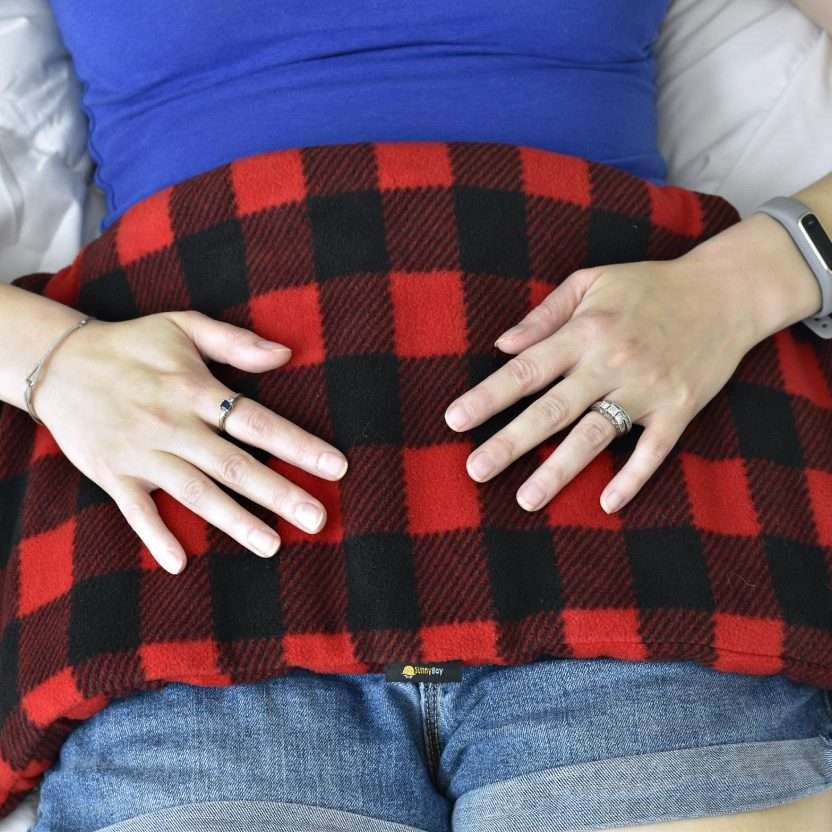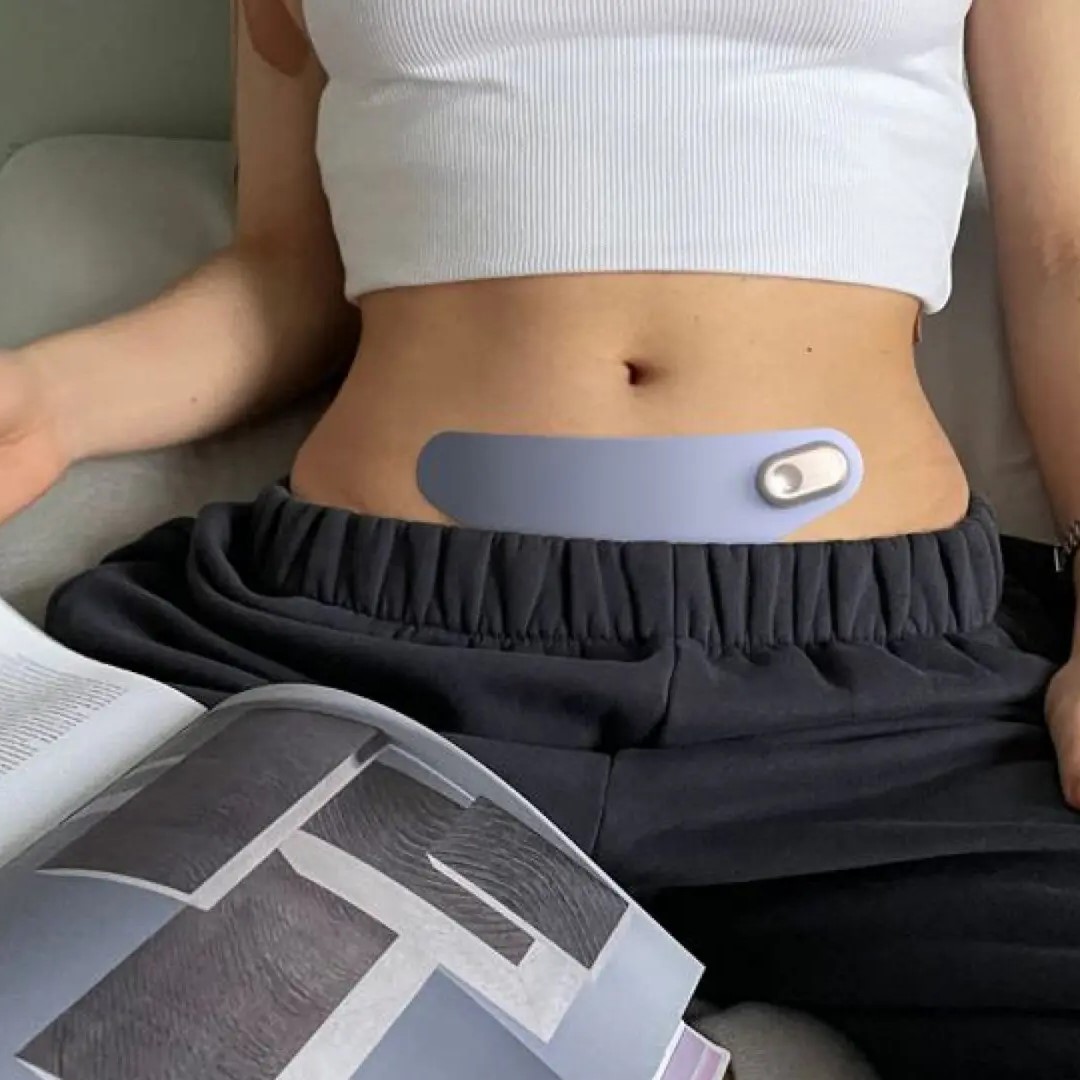Soothing Stomach Pain with Heat: Does It Work?
Introduction: a Heating Pad on Stomach
Using a heating pad on stomach has become a popular home remedy for various ailments, and for good reason. This simple device offers a range of benefits that can alleviate discomfort, promote relaxation, and aid in recovery. While it might seem like a straightforward tool, there is a wealth of information surrounding its use and effects. In this article, we will delve into the science behind heat therapy, explore the various conditions a heating pad can help relieve, discuss the proper usage and possible precautions, and share some additional tips to enhance your experience with heat therapy.
Recognizing the Symptoms of Stomach Pain
Stomach pain can show up in many ways. It often feels like a dull ache or sharp pains in the abdomen. This pain could be constant or come and go. Recognizing the symptoms is key to understanding how to treat it. Common signs include bloating, gas, and a sensation of fullness. Some people experience severe symptoms, such as nausea or sharp pains that worsen with movement. If stomach pain includes other symptoms like fever, vomiting, or difficulty breathing, it may indicate a more serious condition. It’s crucial to identify these symptoms early to manage the pain effectively and avoid complications.
The Benefits of Using a Heating Pad for Stomach Ache
When you have a stomach ache, finding relief is your top priority. A heating pad can be an effective tool to ease your discomfort. Here’s how it can help:
- Relaxes Muscles: The heat from a pad relaxes abdominal muscles, which can ease pain and cramps.
- Increases Blood Flow: Warmth improves blood circulation. Better circulation can speed up healing and reduce pain.
- Reduces Inflammation: Heat can lower swelling in the abdomen by dilating blood vessels.
- Comfort: A heating pad provides a sense of comfort, which can help reduce stress that might worsen abdominal pain.
Before using a heating pad, ensure it’s not too hot to prevent skin burns. Always wrap it in a cloth and use it on the area for 15 to 20 minutes at a time. Take breaks between sessions to avoid skin irritation. Remember, if the pain is severe, or if you have other worrying symptoms, please consult a doctor.
When to Use Heat for Stomach Pain Relief
Using a heating pad on the stomach can offer pain relief in certain situations. It is suitable when you have muscle cramps or mild discomfort. Here are specific times when applying heat may help:
- For Muscle Spasms and Cramps: If your stomach pain comes with muscle spasms, heat can relax the muscles.
- During Menstruation: Many women find relief from menstrual cramps with a heating pad.
- For Non-inflammatory Issues: Use it for non-inflammatory issues, as heat can worsen inflammation.
- After the Initial Injury Phase: If an injury causes the stomach pain, avoid heat in the first 48 hours.
Remember, heat should not be your first choice if you have swelling or inflammation. It may help with the discomfort, but it can increase inflammation. For sharp, acute pain that feels more intense than a typical stomach ache, consult a doctor before applying heat. Prolonged or severe pain requires medical evaluation. Also, if the pain follows an injury or is accompanied by symptoms like fever or vomiting, seek medical advice promptly.
Alternative Home Remedies for Stomach Discomfort
Beyond the heating pad, several home remedies can help with stomach pain. Simple, natural solutions often provide relief with minimal risk of side effects. Here are some alternative methods to consider:
- Ginger: This root can calm an upset stomach. Chew on a piece or sip ginger tea.
- Peppermint: Peppermint tea or oil can relax the digestive system and reduce pain.
- Chamomile: Drinking chamomile tea may soothe stomach muscles and help with digestion.
- Rice Water: Drinking the water left over from cooked rice can ease stomach discomfort.
- BRAT Diet: Eating bananas, rice, applesauce, and toast can stabilize digestion.
- Warm Lemon Water: It aids digestion and might provide relief from stomach pain.
- Yogurt: The probiotics in yogurt are good for your gut health.
When you’re trying these home remedies, remember to take it slow. Start with small amounts to see how your stomach reacts. Avoid heavy, greasy, or spicy foods. These can make stomach aches worsen. If your discomfort continues or you notice severe symptoms, it might be time to seek medical attention.
Over-the-Counter Medications for Stomach Ache
When you’re dealing with a stomach ache, over-the-counter (OTC) medications can be a quick solution. Here’s a guide on what types of medications can help and how to use them safely:
- Antacids: These help to neutralize stomach acid and can provide rapid relief from pain due to heartburn or indigestion. Popular options include Tums and Alka-Seltzer.
- H2 Blockers: These reduce the amount of acid your stomach produces. Medications such as ranitidine or famotidine can be effective if your stomach ache is from acid reflux.
- Proton Pump Inhibitors (PPIs): For severe heartburn, PPIs like omeprazole or esomeprazole can be used. They lower stomach acid more effectively than H2 blockers.
- Pain Relievers: For general relief, you can use acetaminophen. Avoid using NSAIDs like ibuprofen or aspirin, as they might worsen stomach pain.
Always read the label on any medication and follow the instructions. Don’t use more than the recommended dose. Remember, if your stomach ache persists after using these medications, it’s crucial to consult a doctor.
Hydration’s Role in Managing Stomach Pain
When dealing with stomach pain, keeping hydrated is key. Here’s how proper hydration can aid in the management of stomach discomfort:
Importance of Fluid Intake
Your body needs fluids to function.
Adequate water intake can help digestion.
It can prevent problems like constipation that might cause pain.
Best Drinks for Stomach Pain
Choose water or clear broths.
Avoid caffeine, carbonated, and sugary drinks.
Herbal teas like ginger or peppermint may help.
Tips for Staying Hydrated
Drink small sips, especially if you feel nauseous.
Don’t chug water, it can worsen nausea.
Use a straw to control how much you drink.
Hydration is only part of managing stomach pain.
If your pain persists, consult a doctor.
Remember to combine hydration with rest and suitable over-the-counter medications if necessary.
When to Seek Medical Attention for Abdominal Pain
While many methods can alleviate abdominal discomfort, some situations require medical attention. Here’s how to tell when it’s time to see a doctor:
- Severe Pain: If the pain is intense and unrelenting, it’s crucial to get medical help.
- Persistent Symptoms: Pain that doesn’t improve with home remedies or over-the-counter medications should be evaluated by a healthcare professional.
- Accompanied by Other Serious Symptoms: Fever, vomiting, difficulty breathing, or bloody stools are alarming signs. Seek immediate medical care if you experience any of these.
- Changes in Bowel Movements: Unexplained changes, such as persistent diarrhea or constipation, need medical evaluation.
- Pain After Injury: Any abdominal pain resulting from an injury should be checked to rule out internal damage.
- During Pregnancy: Abdominal pain during pregnancy always warrants a call to your doctor.
Remember, unaddressed abdominal pain can lead to more serious conditions. It’s better to be cautious and seek professional advice if you are unsure about the symptoms.
 Preventive Measures and Lifestyle Changes for Stomach Health
Preventive Measures and Lifestyle Changes for Stomach Health
To maintain stomach health and prevent discomfort, consider these tips:
- Eat Smaller, Frequent Meals: Large meals can overload your digestive system. Stick to smaller portions.
- Incorporate High-Fiber Foods: Fiber-rich foods like fruits, vegetables, and whole grains aid digestion.
- Limit Spicy and Fatty Foods: These can irritate the stomach. Choose milder options instead.
- Exercise Regularly: Physical activity helps keep your digestive system in rhythm.
- Manage Stress: High stress can impact your gut. Try relaxation techniques like breathing exercises.
- Avoid Lying Down After Eating: Wait at least two hours before going to bed or lying down to prevent heartburn.
- Quit Smoking and Reduce Alcohol: Smoking and excessive alcohol harm stomach lining.
- Chew Food Thoroughly: Chewing well helps digestion and eases the work of your stomach.
Adopting these lifestyle changes can lead to better stomach health and reduce the chances of pain. If you regularly experience discomfort, reflect on your habits and make adjustments. Always consult your doctor for personalized advice. Combining a healthy lifestyle with proper medical care is the best strategy for preventing stomach issues.

